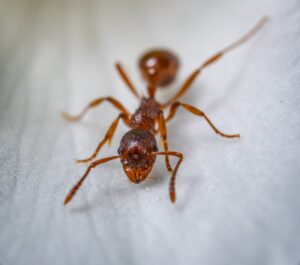Ants can detect the scent of cancer in urine

source: livescience.com, contributed by FAN Steve Page | image: pexels.com
Ants use their antennae to sniff out cancer
Ants can be trained to detect cancer in urine, a new study finds.
Although ant sniffing is a long way from being used as a diagnostic tool in humans, the results are encouraging, the researchers said.
Because ants lack noses, they use olfactory receptors on their antennae to help them find food or sniff out potential mates. For the study, published Jan. 25 in the journal Proceedings of the Royal Society B: Biological Sciences(opens in new tab), scientists trained nearly three dozen silky ants (Formica fusca) to use these acute olfactory receptors for a different task: finding tumors.
In a lab, scientists grafted slices of breast cancer tumors from human samples onto mice and taught the 35 insects to “associate urine from the tumor-bearing rodents with sugar,” according to The Washington Post(opens in new tab). Once placed in a petri dish, the ants spent 20% more time next to urine samples containing cancerous tumors versus healthy urine, according to the study.
In a lab, scientists grafted slices of breast cancer tumors from human samples onto mice and taught the 35 insects to “associate urine from the tumor-bearing rodents with sugar,” according to The Washington Post(opens in new tab). Once placed in a petri dish, the ants spent 20% more time next to urine samples containing cancerous tumors versus healthy urine, according to the study.
his is important because the earlier cancer is detected, the sooner treatment can begin. The researchers are hopeful that cancer-sniffing ants have the potential “to act as efficient and inexpensive cancer bio-detectors,” they wrote in their study.
“The results are very promising,” Piqueret said. However, he cautioned that “it’s important to know that we are far from using them as a daily way to detect cancer.”
